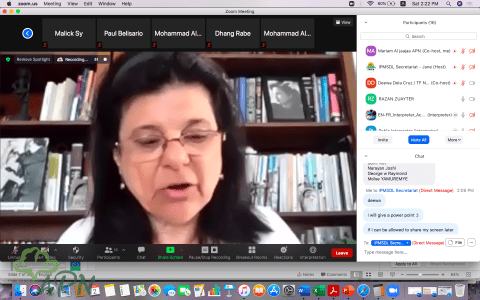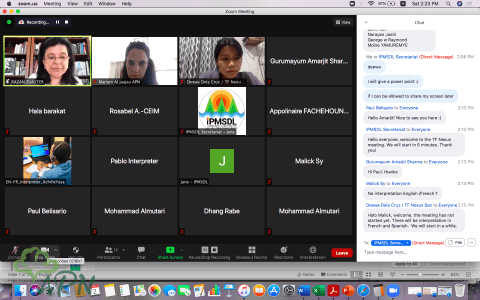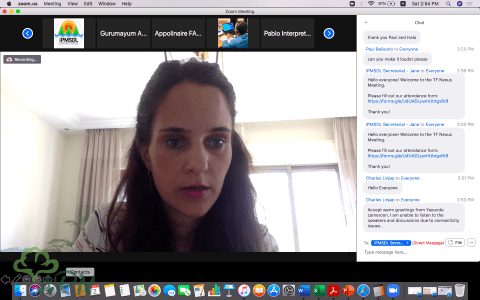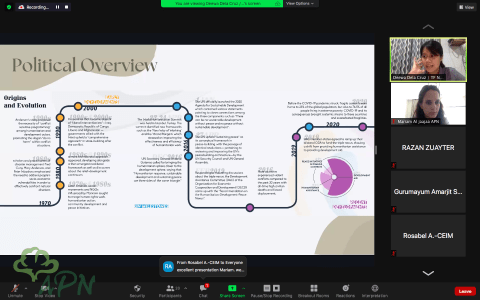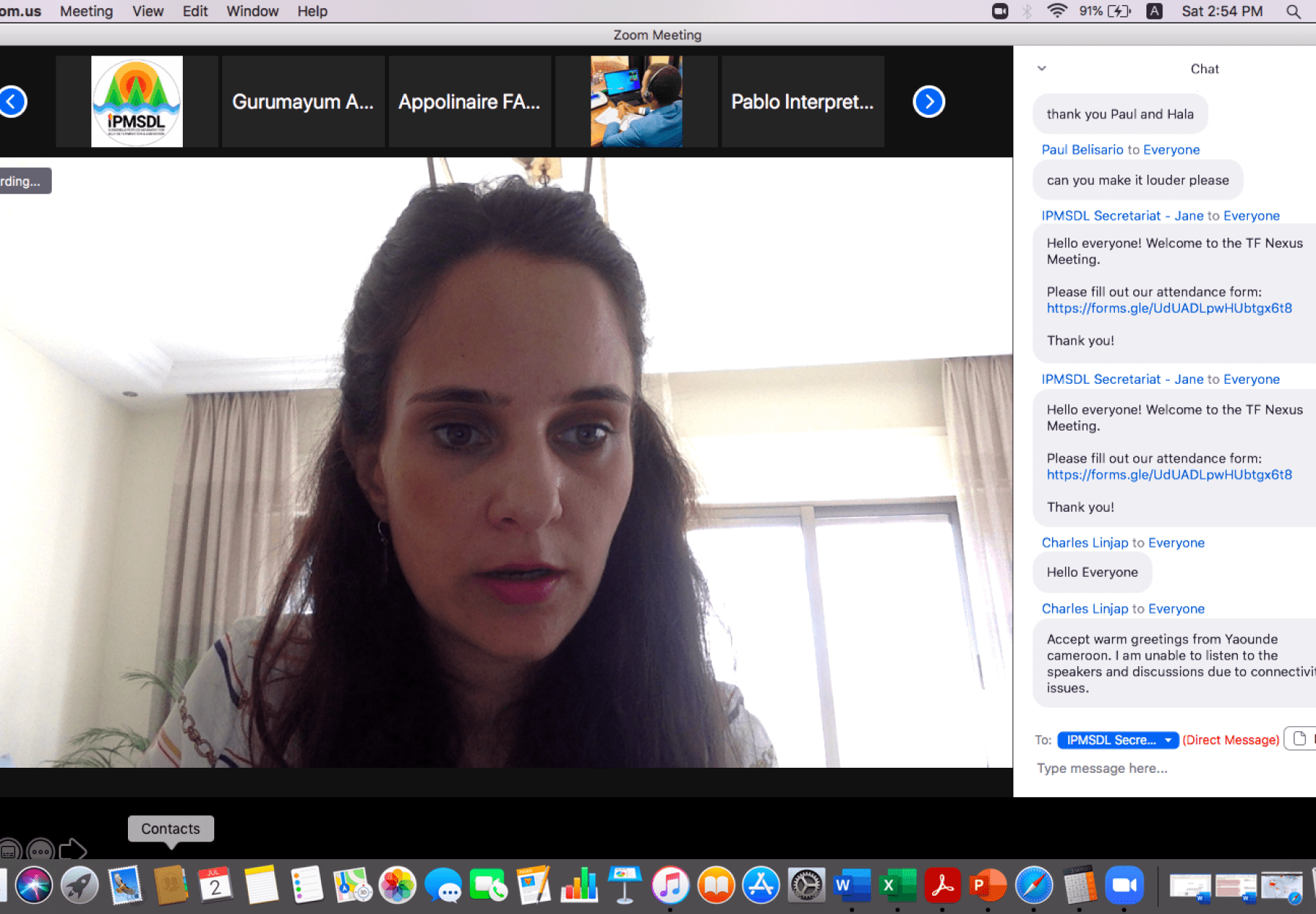
APN| Amman – Zoom
2 July 2022
The Arab Group for the Protection of Nature participated in a meeting within the Working Group on Conflict and Fragility affiliated with the CSO Partnership for Development Effectiveness (CPDE), facilitated in partnership with the Organization of Indigenous Peoples Movement for Self-determination and Liberation. The meeting aimed to come up with a work program for this group. APN President, Razan Zuayter gave a welcome speech, followed by a presentation by APN General Manager Mariam Al Jaajaa, titled “Food Security in the Context of War, Occupations and Sanctions: Frameworks and Concepts”. The presentation provided an introduction to the growing number of forcibly displaced people and refugees in the world. In the first month of 2022, their number exceeded 100 million for the first time ever. It is four times the number in 2010, and represents 1% of the current total population, furthermore, 85% percent of this population are concentrated in developing countries, and this is because most of the world's conflicts are concentrated in Asia and Africa. In her presentation, Al Jaajaa stressed that occupation has specific manifestations, and are usually long term such as the case of Palestine, Kashmir, Iraq and Afghanistan. She also touched upon the damage caused by sanctions on the right to food of people including in Syria, Cuba, Lebanon, Venezuela, Iran, North Korea, Yemen, Palestine, Sudan, and Ethiopia.
The presentation illustrated that the traditional methods of solving food crises are not feasible due to the political and institutional separation between the scopes of work in the humanitarian, development and peace sectors as well as insufficient analysis and hence accurate understanding of conflicts. The presentation also shed light to the negative role of influential states in undermining local capacities and priorities through external interventions (including the marginalization of local food systems), and the politicization of humanitarian work. Al Jaajaa reviewed the UN-advocated “Triple Nexus Approach” which integrates humanitarian aid, development support, and peacebuilding and insisted that there is a need to define the three pillars in a participatory manner, especially the peace pillar, as well as develop a clear action plan with a distribution of roles. Al Jaajaa asserted that work on the nexus should be unified across global platforms where the Framework for Action for Food Security and Nutrition in Protracted Crises (FFA) should be mainstreamed to help interpret and clarify the triple nexus approach. The recommendations also called for the establishment and strengthening of multi-actor local platforms for designing and implementing food related interventions. They also pressed for the establishment of specialized food security units within governments to monitor food security programs, and finally, political solidarity with and among affected communities
